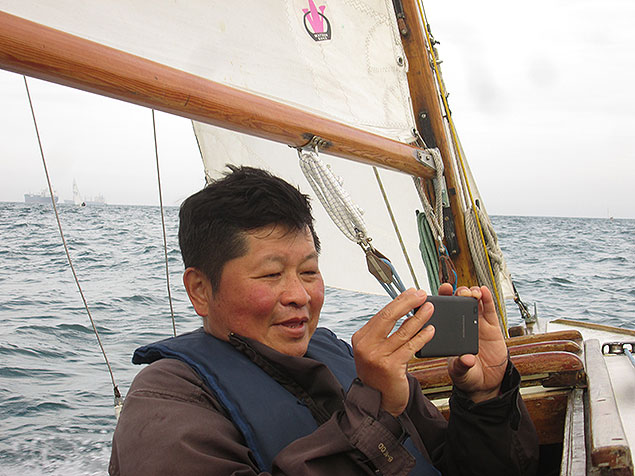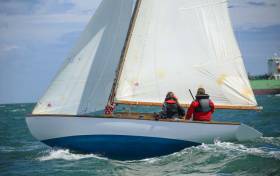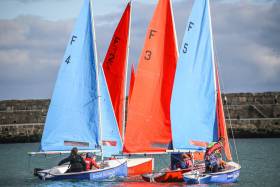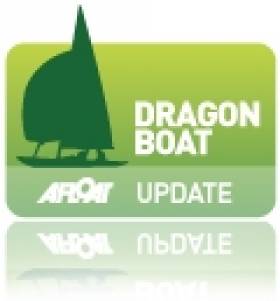Displaying items by tag: Royal Saint George Yacht Club
The Dun Laoghaire Glen class held their annual dinner and prize giving in the newly refurbished dining room of the Royal St George Yacht Club last Saturday. Once again Richard O'Connor’s Glenluce was the outstanding trophy winner for the season.
The well attended event was treated to a showing of a new video featuring highlights of the 2016 season (below). Made over the course of the year by Ki Duong, one of the regular Glen sailors, it features amusing footage of the Glens celebrating Bloomsday.
 Regular Dublin Bay Glen crew Ki Duong has been documenting the class for the past six years. Watch his latest vid below
Regular Dublin Bay Glen crew Ki Duong has been documenting the class for the past six years. Watch his latest vid below
This is the sixth Glen video which Ki has posted to YouTube. It is wonderful to have this record of Dun Laoghaire’s legacy fleet available on line.
The Glen Class, under Class Captain Pete Hogan, are in rude good health going into the 2017 season with the newly restored Glenmarissa set to re-join the fleet.
Firefly Dinghy Practice At Dun Laoghaire Ahead of Schools Team Racing Competition
Although the Leinster Schools Team Racing Championships may have been postponed at the weekend, it did not stop Dublin's Saint Andrews College from putting in a busy practice session in the Royal St. George Yacht Club Fireflies dinghies on Saturday afternoon.
The youth event is rescheduled for March 24th at the Royal St. George Yacht Club.
#dragon – The weekend's Cannonball Trophy saield on Dublin Bay is an annual team racing event sailed by Dragon sailors from The Royal London Yacht Club in Cowes, The Royal Netherlands Yacht Club in Muidan Holland and The Royal St George Yacht Club in Dun Laoghaire. Occasionally the Dragon sailors from Deauville Yacht Club in France also compete but they were unavailable to travel this year.
Racing is held on a Friday & Saturday in April.
This year they sailed in glorious conditions on Friday in Scotsmans Bay with about 10knots of breeze. We used an equalised fleet of 1720's from three of the waterfront Clubs in Dun Laoghaire for the event. Two Rounds were sailed on Friday where the London Dragons ended up with just one extra race win ahead of the Dublin Bay Dragon Fleet. The fleet were expected to go into a five race final against each other on Saturday but this was not to happen as the Race Officer deemed the 20–knot conditions to be unsafe for racing.
The event is as much about the socials as it is about racing. The sailors were treated to a night of traditional Irish entertainment in Johnny Fox's Pub in the Dublin mountains on Friday evening. On Saturday after racing was cancelled they headed on the DART to Howth for a long lunch in Aqua Restaurant before returning to the Royal St George for a dinner & prize giving.
The Dublin Bay Dragon helms were: Martin Byrne, Andrew Craig & Tim Pearson.































































